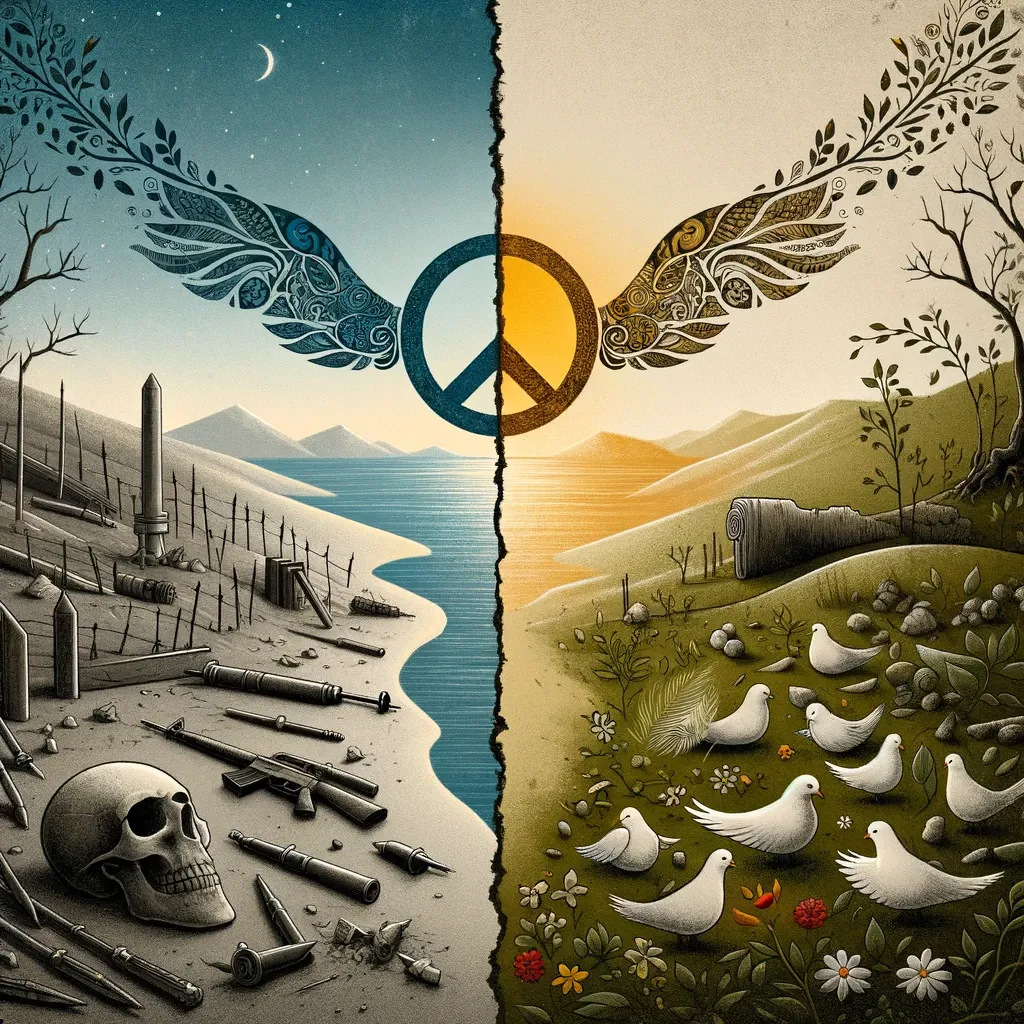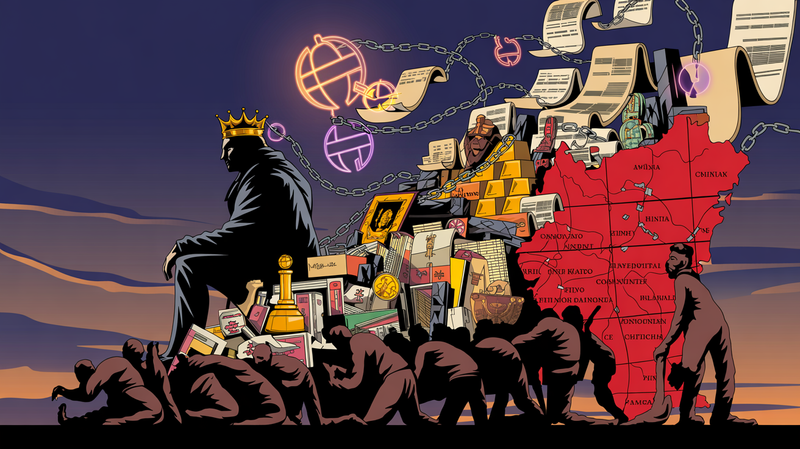The Elusive Peace: Unraveling Why War’s End Rarely Ushers in True Peace
The history of humanity is interwoven with narratives of conflict and war, interspersed with fleeting moments of peace. This intricate tapestry of human experience raises a fundamental question: Why does the end of war rarely lead to true peace? This philosophical exploration delves into the reasons behind this perennial cycle

The history of humanity is interwoven with narratives of conflict and war, interspersed with fleeting moments of peace. This intricate tapestry of human experience raises a fundamental question: Why does the end of war rarely lead to true peace? This philosophical exploration delves into the reasons behind this perennial cycle and examines the elusive nature of lasting peace.
The Historical Illusion of Post-War Peace
History teaches us that periods of peace are often nothing more than brief interludes between conflicts. A closer examination of various historical epochs reveals a pattern of recurring conflicts, where so-called peace times are merely pauses in hostilities. The Treaty of Versailles post World War I, for instance, is a classic example of a peace agreement that sowed the seeds for future conflict rather than fostering lasting peace. Such instances highlight the fragile nature of peace agreements, which often fail to address underlying issues, leading to renewed hostilities.
The Power Dynamics Post-War
The cessation of war frequently leaves a power vacuum, creating a fertile ground for new conflicts as various factions vie for control. This power struggle is often compounded by shifting geopolitical landscapes post-war, which create new tensions and alignments. The Cold War era exemplifies how geopolitical changes post World War II led to a new kind of ideological conflict between emerging superpowers.
Economic and Political Interests
The economies of many nations are deeply intertwined with warfare, often leading to a perpetuation of conflict. Post-war periods can disrupt these war economies, leading to economic instability and further conflict. Politically, the aftermath of war provides an opportunity for entities to exploit the situation for strategic gains, often at the expense of genuine peace-building efforts.
The Human Propensity for Conflict
Psychological factors play a significant role in driving human beings toward conflict. Fear, desire for power, and a need for identity often lead to aggression and hostility. Cultural narratives that glorify war and conquest further embed a propensity for conflict in the collective psyche, making the pursuit of peace even more challenging.
Redefining Peace
For genuine peace to prevail, we must expand our understanding of what it means. Peace should not merely be the absence of war but should encompass social justice, economic equity, environmental sustainability, and cultural empathy. Educational and cultural shifts are needed to foster a mindset that values collaborative problem-solving over conflict and domination.
Towards a New Paradigm of Peace
The journey towards lasting peace requires a global dialogue that transcends narrow nationalistic and self-interest motives. Platforms like Earth’s People’s Council 301 are essential in facilitating discussions aimed at a holistic approach to global issues. It is a collective journey that requires a shift in how we perceive and engage with the world, recognizing the interconnectedness and interdependence of all nations and peoples.
The path to lasting peace is complex and multifaceted. It demands a reimagining of our global society, where the focus shifts from preventing war to actively building peace through understanding, empathy, and cooperation. Only then can we hope to break the cycle of conflict and move towards a world of lasting peace.




